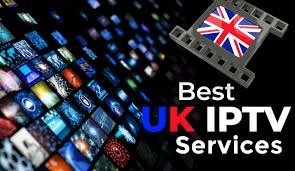Internet Protocol Television (IPTV) has become a prominent technology in the UK, transforming the way people consume television content. With its innovative approach to content delivery, IPTV has gained popularity among consumers seeking flexibility, convenience, and a diverse range of programming options. In this article, we’ll delve into the definition of IPTV, its workings in the UK, and how it has revolutionized television consumption.
What is IPTV?
IPTV refers to the delivery of television services over internet protocol networks, such as the internet, instead of traditional cable or satellite methods. In essence, IPTV enables users to stream live TV channels, access video-on-demand content, and engage with interactive features using their internet connection. Unlike traditional broadcasting methods, which rely on dedicated infrastructure and fixed schedules, iptv uk leverages IP networks to transmit multimedia content in digital format, providing users with greater flexibility and control over their viewing experience.
How Does IPTV Work in the UK?
In the UK, IPTV operates similarly to how it does in other regions, with a few variations to cater to local preferences and regulations. The process of accessing IPTV services in the UK typically involves several key steps:
1. Content Acquisition and Encoding: IPTV service providers in the UK acquire television content from various sources, including broadcasters, content creators, and production studios. Once acquired, the content is encoded into digital formats compatible with IP networks. This encoding process may involve compressing video and audio data using codecs to optimize bandwidth utilization and ensure high-quality playback.
2. Content Distribution: After encoding, the content is distributed to IPTV servers located in data centers or content delivery networks (CDNs). These servers store and manage the multimedia content, ensuring reliable and efficient delivery to end-users in the UK. Content distribution networks are designed to handle high volumes of traffic and provide low-latency streaming, enhancing the viewing experience for users across the country.
3. Middleware and User Interface: Middleware platforms serve as the backbone of IPTV services in the UK, facilitating user authentication, content navigation, and interactive features. These platforms provide users with intuitive interfaces to browse program guides, access on-demand content, and customize their viewing preferences. Additionally, middleware systems enable service providers to manage user accounts, subscriptions, and billing information efficiently.
4. User Authentication and Access Control: To access IPTV services in the UK, users typically need to authenticate themselves using credentials provided by their service provider. User authentication systems verify the identity of subscribers and grant access to authorized content based on subscription plans and access rights. Access control mechanisms ensure that only paying subscribers can access premium content, protecting the rights of content creators and distributors.
5. Content Delivery to End-Users: Once authenticated, users in the UK can access IPTV content through a variety of devices, including smart TVs, computers, smartphones, and set-top boxes. IPTV protocols, such as Real-Time Streaming Protocol (RTSP) or HTTP Live Streaming (HLS), are used to deliver multimedia streams to end-users over IP networks. These protocols enable adaptive bitrate streaming, allowing content to be dynamically adjusted based on network conditions and device capabilities.
6. Regulatory Considerations: In the UK, IPTV service providers are subject to regulations governing content licensing, copyright infringement, and consumer protection. Providers must ensure compliance with these regulations to avoid legal issues and maintain consumer trust. Similarly, users should be aware of their rights and responsibilities when accessing IPTV content to ensure that they are using legitimate services and adhering to copyright laws.
In conclusion, IPTV has become a significant aspect of television consumption in the UK, offering consumers a versatile and customizable viewing experience. With its ability to deliver live TV, on-demand content, and interactive features over IP networks, IPTV has redefined how people access and engage with television content in the digital age. As IPTV continues to evolve and innovate, it is poised to remain a prominent force in the UK television industry for years to come.


